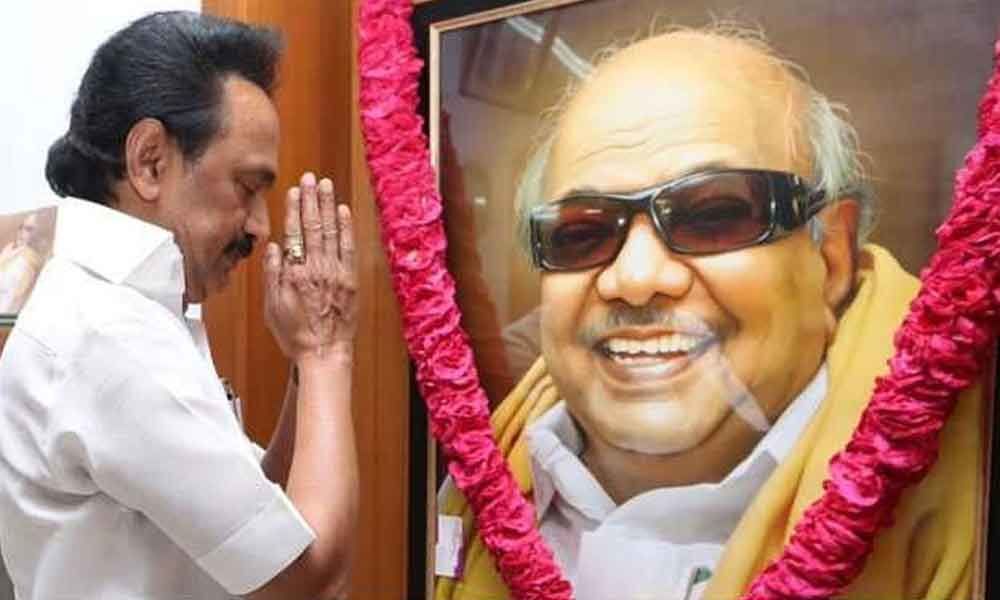Was it a pyrrhic victory for DMK in Tamil Nadu?

Having dropped off the national media radar steadily over the past three years, with Jayalalithaa’s demise in 2016
Having dropped off the national media radar steadily over the past three years, with Jayalalithaa's demise in 2016 and later the longest surviving politician M Karunanidhi expiring in 2018, Tamil Nadu politics did not evoke even minimal interest all through the run-up to the Lok Sabha polls.
With little-known leaders with acronyms like OPS and EPS heading the state and making no notable efforts to keep the political pot stirring time and again, the news-hungry scribes and the online pundits accorded more media space to the neighbouring states of Kerala and the two Telugu states as the election schedule was announced.
After all, in those states, something or the other like Sabarimala issue, the Delhi dreams of Chandrababu Naidu and KCR etc kept them pretty busy with their echo chambers.
For a brief while, the Tamil state was in the news when it became the first one in the country to have elections cancelled in one of its parliamentary constituencies – Vellore – where raids resulted in the unearthing of huge unaccounted cash.
Finally, it was the Telugu CM duo which brought Chennai back into the reckoning as each of them wanted the oldest regional party, the Dravida Munnetra Kazhagam to be part of their regional party bandwagon in a bid to lobby for more influence in the national capital. Of course, the developments took their own turn.
Curiously, the neighbours of Stalin, the present president of DMK suffered various levels of jolts in their earnest endeavours while the Dravidian party, in alliance with the Grand Old Party came up with a thumping performance as the results trickled out on Thursday.
Many news channels have not missed this development as they bracketed both the extreme southern states – Tamil Nadu and Kerala – in their analysis of having bucked the 'Tsunamo' which finished every other major political formation in India during the poll war.
Analytical pieces, which have flooded offline and online platforms have some interesting observations.
Not to talk of memes and trolls which do not accord much importance to the Stalin triumph, saying it amounts to precious nothing as far as accrual of political benefits go.
One such piece in a blog titled 'Madhyamar' said that despite the UPA bagging 37 seats out of which DMK won a solid 23, it is futile.
The argument went that unlike the wily politician Karunanidhi was, who saw that his party/family interests were protected at the national level since the coalition rule of V P Singh in 1989, his son and successor was yet to get his swag in the political corridors of Delhi.
Then, his decision to sail with Rahul Gandhi, who visited the state many times in the past few months effectively sealed the pipeline to the other political formation which has returned with an overwhelming mandate from the people.
Hence, despite an alluring number of MPs independently, it may have to do a U-turn from its present camp to go into the other, which may or may not want them in the first place.
More worrisome should have been the drying up of the vital chance that Stalin had imagined would be his, as the assembly bypoll results too came out.
While elections were held for 22 seats along with the Lok Sabha polls, the DMK won a handsome 13 with the ruling AIADMK managing to get the remaining 9. Yet, the CM's chair is still with Jayalalitha loyalists as they required only 5 seats to retain their slipping hold.
Hence, with Chennai cup and the Delhi dream both shattered, the DMK may have to wonder whether it benefitted winning so massively, as they do not have a readymade traction for their success at present.
The assembly elections too are scheduled a good two years later in 2021, where there are likely to be local factors at play and newer netas like Rajinikanth attempting to take the plunge finally into politics.
The public too may feel disempowered with their local politicians finding their hotlines to Delhi switched off or switched on only when the upcountry establishment would want the Tamil counterparts to do their bidding, with or without strings attached.

